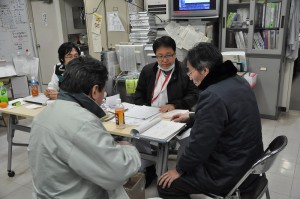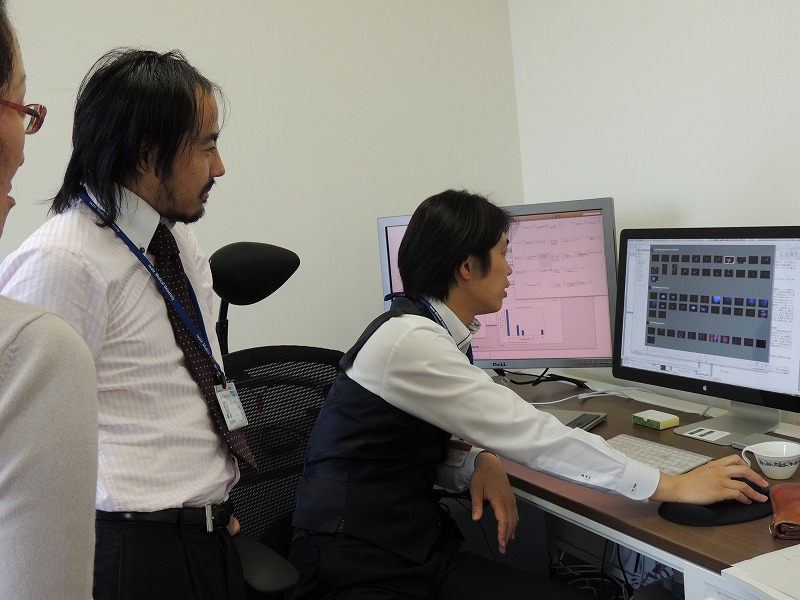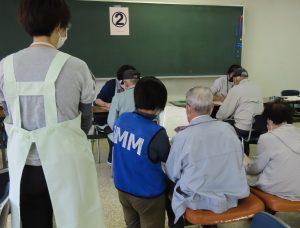Iwate Medical University is working with Tohoku University to implement Iwate Tohoku Medical Megabank Project. The Project’s budgets are supplied by the Reconstruction Agency and the Ministry of Education, Culture, Sports, Science, and Technology (MEXT). In addition to restoring medical facilities and services in areas stricken by the Great East Japan Earthquake and Tsunami of March 2011, the Project will conduct a large-scale genomic cohort study (health surveys and bioinformatics over a prolonged period of time) primarily in disaster-stricken areas and construct a system of next-generation medical care, including drug discovery.
To achieve these goals, the Iwate Tohoku Medical Megabank Project will take place in three stages:
 The Project will coordinate and deploy medical personnel to disaster-stricken areas, help to restore community medicine, and conduct health surveys of local residents (focusing on disaster-stricken areas) over a prolonged period of time. In addition, the Project will conduct local resident and three-generation cohort studies (including genomic information). The Project will create a biobank that links biological samples (blood, urine, etc.) provided by local residents with background information obtained from health surveys, medical records, and genomic information (Stage 1).
The Project will coordinate and deploy medical personnel to disaster-stricken areas, help to restore community medicine, and conduct health surveys of local residents (focusing on disaster-stricken areas) over a prolonged period of time. In addition, the Project will conduct local resident and three-generation cohort studies (including genomic information). The Project will create a biobank that links biological samples (blood, urine, etc.) provided by local residents with background information obtained from health surveys, medical records, and genomic information (Stage 1).
-
The Project will collaborate with other cohort studies in Japan to create a large biobank. The Project will collect and share fundamental information, including biological (e.g., genomic) and health information, to provide residents of disaster-stricken areas with next-generation medical care which includes personalized medicine and prevention strategies (Stage 2).

- When utilizing the general population-based genome cohort biobank that we have established, we will emphasize mutual understanding and trustful relationship with local residents including participants in the health surveys and local governments.
The general population-based genome cohort biobank constructed in this project will be maintained and enhanced to be one of the largest in Japan, and will function as the core of the biobank in Japan and contribute to next-generation medical care which includes personalized medicine and prevention strategies (Stage 3).











